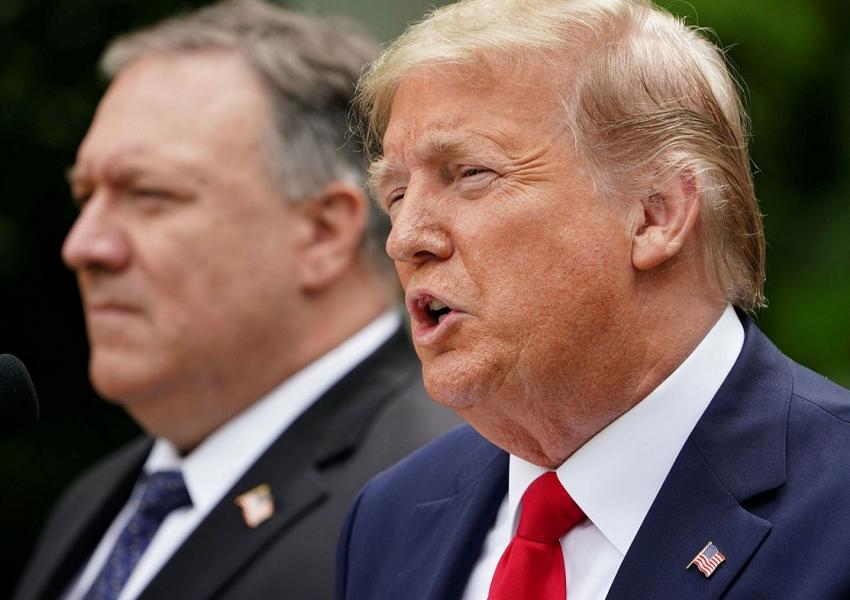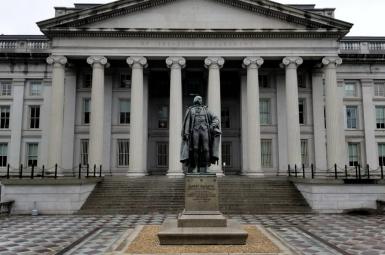
UN Sec General Says Security Council Decides If US Can Resort To Snapback On Iran
United States officials on Wednesday continued to insist that all United Nations sanctions on Iran should ‘snapback’ this Saturday at 20:00 Eastern Time [September 19 in the US, September 20 by European time], but the UN Secretary-General António Guterres on the same day stressed that only the UN Security Council can interpret its own Resolution 2231.
Asked at a press conference at the UN Headquarters on Wednesday as to whether “diplomatic chaos” was looming, Guterres insisted the UN position was simple and unchanged: “It is the Security Council that is the body that is able to do the interpretation of the Security Council resolutions and we will act in line with what the Security Council does.”
The US has argued that under the terms of Iran’s 2015 nuclear deal with world powers, UN sanctions against Iran should automatically ‘snap back’ should Iran violate the limits of the deal, which it has done, including by boosting its enriched iranium stocks. Having moved snapback on August 20, the US says that sanctions should automatically come back on September 20.
But the remaining parties to the JCPOA – Russia, China, Iran, and the ‘E3’ of Germany, France and Britain – argue that that the US, having left the agreement in May 2018, cannot invoke any of its provisions, including the snapback mechanism.
Earlier on Wednesday, at a press conference at the White House President Donald Trump defended his withdrawal from the agreement, known as the JCPOA (Joint Comprehensive Plan of Action), which was sanctioned by the UN Security Council Resolution (UNSC) 2231.
Trump derided “that horrible, stupid deal,” which was agreed by his predecessor, President Barak Obama. Trump reiterated the US would not allow Iran to develop a nuclear weapon: “Just remember that. There’s no way that’s going to happen.”
The US is concerned that without snapback, the UN arms embargo on Iran introduced in 2007 by the Security Council Resolution 1747 will expire next month by virtue of Resolution 2231, which sanctioned the JCPOA.
Washington has threatened to hit China and Russia with “huge” sanctions should they seek to supply Iran if the embargo is lifted. Both veto-wielding members of the Security Council voted on August 14 against a US resolution to prevent the embargo expiring.
Asked at a special briefing on Wednesday if Washington was making concrete plans for secondary sanctions on countries sending arms to Iran, the US Special Representative for Venezuela and Iran, Elliott Abrams, stressed that UN Iran sanctions – including the arms embargo -- would be back into place this weekend.
It sems that the US ignoring the opposition of other Council members is going to declare all UN sanctions on Iran restored and this will lead to confrontations both with its European allies and other big powers.
“So, one practical effect, we believe,” Adams said, “will be to say to arms manufacturers and traders around the world that if you engage in business with Iran, the very full force of these new or, rather, restored [UN] sanctions will be felt immediately. They will be placed on you.” Adams added that further US announcements were planned over the weekend and next week.
Among the E3, Britain, which is currently in tense talks with other European states over its exit from the European Union, appears most sympathetic to the position of its close ally, the US. Following a meeting in Washington on Wednesday, the UK Foreign Secretary Dominic Raab and US Secretary of State Mike Pompeo stressed their common points.
At a joint press conference, Pompeo said the two countries absolutely agreed Iran should never possess a nuclear weapon. Raab referred to “shades of difference” over the JCPOA but avoided criticism of the US stance and supported the notion of a wider agreement with Iran, as has been envisaged by Trump.
“I think the UK’s position on the JCPOA is well known and the reasons for that are well known,” Raab said. “But we’ve always welcomed US and indeed other efforts to broaden it. We don’t think the JCPOA is perfect by any stretch of the imagination. It should be broadened. Our ambition for a broader rapprochement, a more comprehensive deal, is I think in exactly the same place as the US. And frankly all of the other issues, the means by which we get there, there may be shades of difference, but we always manage them as constructively as we have to this point.”
The Iranian President Hassan Rouhani on Wednesday described opposition to Washington in the UNSC as a “victory of the Iranian nation and the disgraceful defeat of the United States in activation of the snapback mechanism.”








